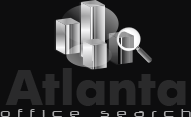Top 6 Reasons To Keep A Regular Check On Your Lease’s Operating Expense Bill
Not once have you heard of the statement, “Check your operating expense statements for any errors and overcharges.” Well, the process of clarifying your operating expense bill does not need to be a bother. The best way to approach this is to have your real estate provider make a thorough review of your operating expense statement. This is useful in determining if more evaluation should be done by professional who have specialized in this field.
Landlords have devoted more time and resources to increase revenue, and one path to doing so is by uncovering the hidden income from tenants through giving more attention to tenant’s pass-throughs. Tenants should be busy reviewing their leases and bills to ensure they do not contain errors or overcharges.
Here are the top 6 best reasons why tenants should increase their effort when it comes to operating expenses and other pass-through charges:
Operating expenses and tax pass-throughs is an expensive venture
Real estate is one of a company’s largest expenses. While the Base Rent you pay on yo8ur commercial leases is the majority of your occupancy cost, operating expense and tax pass-throughs can be the unforeseen cost that you weren’t planning on. It is crucial that you negotiate your lease in a way that helps you control these pass-throughs, and that you follow up annually to make sure your landlord is properly applying the expenses per the negotiated language in your lease.
Special Treatment May not be offered as required
Most commercial leases share a common basic structure for passing through expenses, but some leases (if you have a great broker) involve negotiated caps on how much expenses can escalate on a yearly basis on both individual line items, or blanket caps that cover all of the controllable expenses. Leases that have negotiated language involving the operating expenses should have their pass throughs applied to the bill separately. You will find that, in most instances, landlords do not bill the tenants according to their negotiated lease terms, but instead follow the standard lease of the building.
Errors may occur
Leases are complex. Therefore, it is most likely that tenants may be billed incorrectly. Errors come in many shapes and sizes. An error may range from a simple miscalculation to a wholesale misinterpretation of the language used in the lease. Some of these errors are intentional while some are not. Whatever the cause, errors can lead to an overcharge.
CPA’s Certification by your landlord doesn’t mean you have the exact bills
Your landlord may have certified financial records from a landlord’s CPA firm. These CPA firms are normally careful not to certify each tenant’s bill. What do they certify? – Landlord’s CPA firms normally certify that the operating expenses are treated properly from the owner’s perspective and not from the lease pass through clause for the purpose of financial reporting.
The task of finding the errors lies on you
At the beginning of a new year, landlords are faced with the task of reconciling the actual expenses with the total amounts contributed by the tenants in the previous year. Then, they issue the tenants with the adjusted statements that help settle the liabilities of each tenant and calculate the new estimates for the current year. Landlords have the mandate to follow their leases during this process; however, the burden of identifying the errors and bringing them to the landlord’s attention is still on the tenant.
Time Works against You
Tenants are offered very short windows, approximately 30 to 120 days, to object to billing errors according to the lease. In case the tenant fails to object in time or fails to follow the correct procedures, the statements are declared correct, and mistakes are no longer flexible.
Hopefully you now understand the importance of keeping tabs on your operating expense bill, and will now make an effort to make sure you are not a victim of errors and overcharges.



Recent Comments